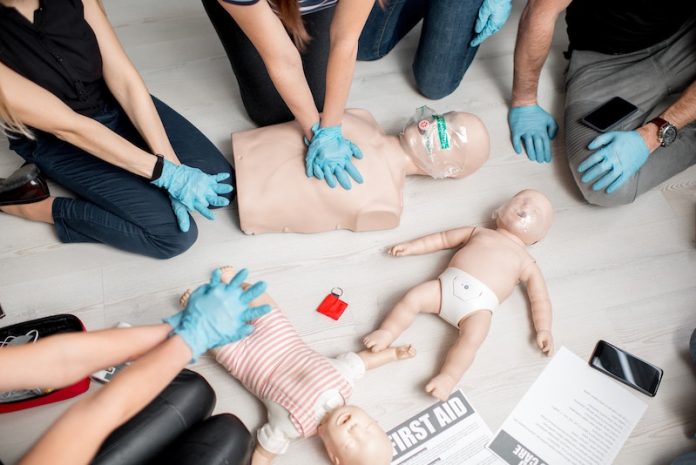
The survival rate of frail patients who receive cardiopulmonary resuscitation (CPR) during or immediately after surgery is a point of contention among medical professionals.
Recently, a team from Brigham and Women’s Hospital conducted a study to determine the outcomes for these patients.
The study, published in JAMA Network Open, suggests that while CPR should not be dismissed as futile for frail patients undergoing surgery, these patients do not fare as well as their non-frail counterparts.
In typical hospital settings, approximately 25% of patients survive after receiving CPR due to a cardiac arrest.
However, this figure increases to 50% for patients who undergo surgery, owing to the continuous monitoring by medical professionals familiar with their health history.
The survival rate among frail patients — often older individuals prone to CPR-related complications — remained uncertain.
To shed light on this, the Brigham team analyzed over 3,000 patients’ data and found that around one-third of older frail patients survive surgical CPR.
Furthermore, frail patients were found to be more susceptible to death from cardiac arrests during non-emergency procedures than non-frail individuals, indicating higher overall surgical risks for these patients.
According to Matt Allen, MD, the lead author of the study, CPR should not be considered futile for frail patients undergoing surgery. However, he noted a significant association between frailty and mortality.
Further Findings
In their study, the team reported that out of 792 patients considered frail, 67% (534 individuals) died within 30 days of receiving CPR during surgery.
Furthermore, of 214 patients deemed frail who lived independently prior to surgery, 59% (127) were discharged to locations other than their homes, including nursing and rehabilitation facilities.
The researchers highlighted that frail patients were more likely to die during cardiac arrests occurring during non-emergency surgeries.
Allen stressed the importance of shifting focus from high- or low-risk procedures to high- or low-risk patients, arguing that no procedure should be considered low-risk for frail patients.
This study brings critical insights into the risks associated with performing surgical CPR on frail patients, enabling physicians to better navigate these delicate situations.
Furthermore, it emphasizes the importance of personalized patient risk assessments, promoting more informed and safer surgical procedures for frail patients.
If you care about health, please read studies about the benefits of low-dose lithium supplements, and what we know about egg intake and heart disease.
For more information about health, please see recent studies about potatoes and high blood pressure, and results showing the 6 best breads for people with heart disease.
The study was published in JAMA Network Open. Follow us on Twitter for more articles about this topic.
Copyright © 2023 Knowridge Science Report. All rights reserved.



